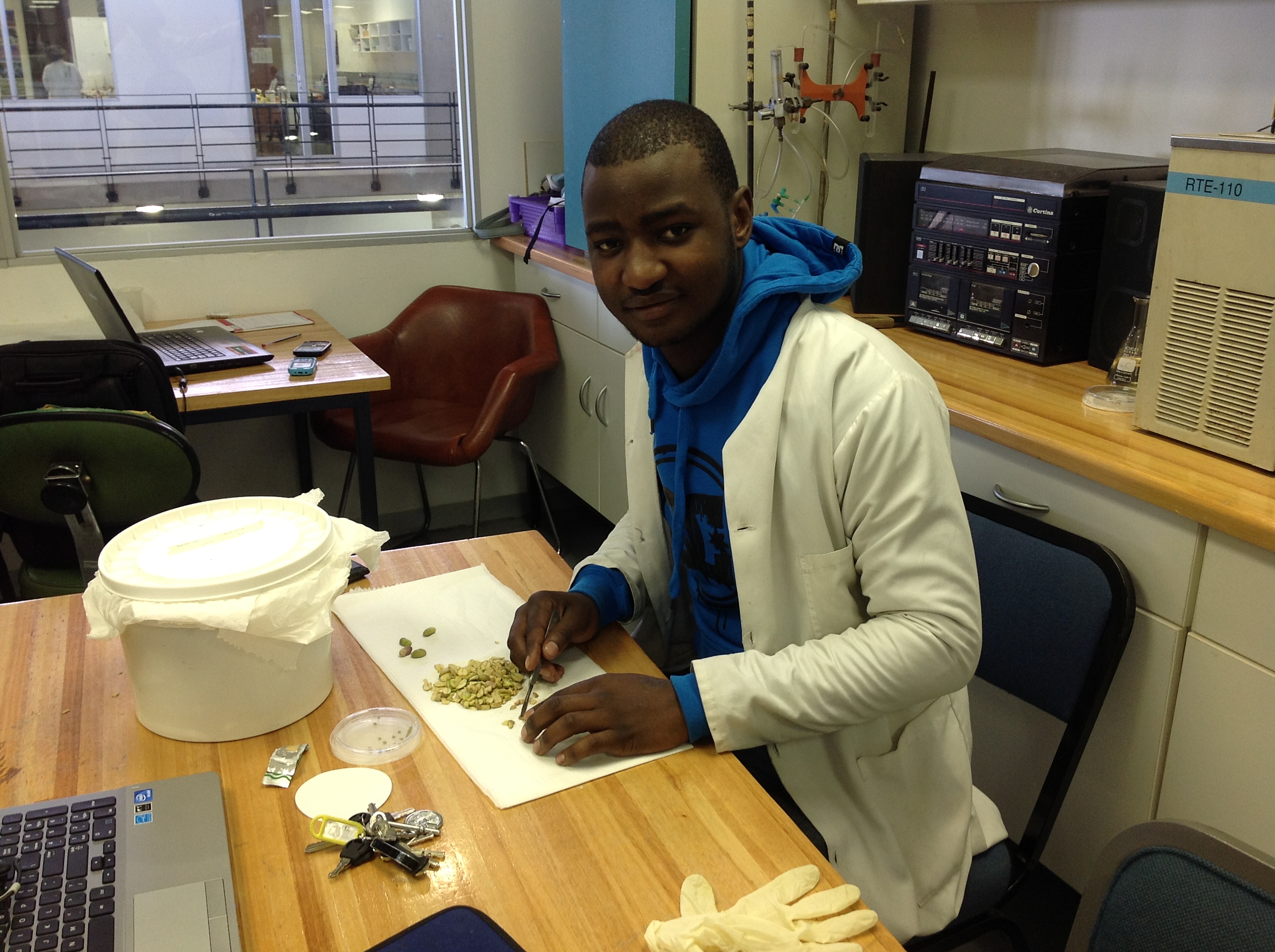
Contact
Room 05-019, Biological and Conservation
Science Building, Westville Campus
Tel: +27 31 2603196
Fax: +27 31 2601195
E-mail: 206514625@stu.ukzn.ac.za/
mshengu.thembela@yahoo.com
MSc Title:
An investigation of certain properties possibly underlying the differing responses of embryonic axes from temperate and tropical recalcitrant-seeded species, to the procedures involved in cryporeservation.
Aim:
To ascertain whether membrane fluidity and the ability to form glasses underlie the differing responses of embryonic axes from temperate and tropical recalcitrant-seeded species, in terms of survival of cryopreservation.
Details of the Research:
The research is proposed to be carried out in selected recalcitrant seeds from tropical (Avecennia marina and Trichilia dregeana) and temperate habitats (Acer pseudoplatanus and Quercus robur). The embryos of the seeds will be excised and the following experiments will be carried out:
Rapid drying of axes using a flash drier (Berjak et al.,1990) to various water contents to determine the extent of desiccation-sensitivity in different species; this will be assessed by viability assays such as germination (Berjak et al,.1993) , tri-phenyl tetrazolium chloride test (Lacon, 1950) and seedling vigour (Berjak et al.,2011b).
The water characteristics during drying and different steps of cryopreservation will be assessed using a sub-ambient Differential Scanning Calorimeter (DSC; TA Q2000) to ascertain the propensity of vitrification up on cooling (Pammenter et al.,1991).
The analysis for the membrane lipid composition, particularly ratios of saturated to unsaturated fatty acids (Metcalfe & Wang,1981) and phytosterols (Chen et al.,2007) will be carried out using gas chromatography.
The possibility of formation of glasses in these axes from tropical and temperate habitats will be evaluated by estimating the quantity of non-reducing sugars and ratio of sugars to RFO's, using HPLC (Dierking & Bilyeu,2009).
The heat stable proteome of these species will be studied using 2-D gel electrophoresis ( Boudet et al.,2006) and the presence/absence of late embryogenesis abundant proteins (LEA) or LEA like proteins rendering tolerance to desiccation will be assessed.
Western blot will be performed to ascertain the role , if any, of heat shock proteins (Altschuler & Mascarenhas, 1982) peroxiredoxin (Mowla et al.,2002) and seed-specific desiccation tolerance proteins (Mulako et al., 2008) to see if any relationship exists between the presence and absence of these proteins and tolerance to desiccation and ultra-low temperatures.
Categorical data (e.g., germination) will be subjected to Chi-square statistical analysis and other data from biochemical analysis will be subjected to analysis of variance (ANOVA) followed by mean separation using Duncan's Multiple range test.